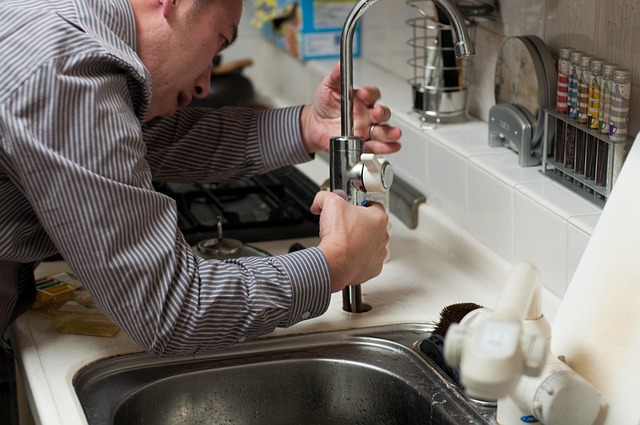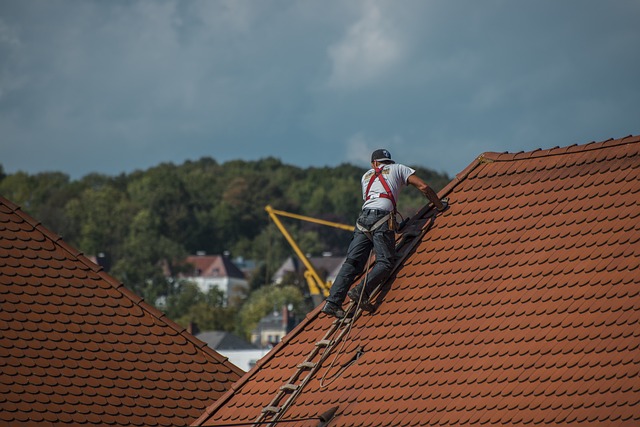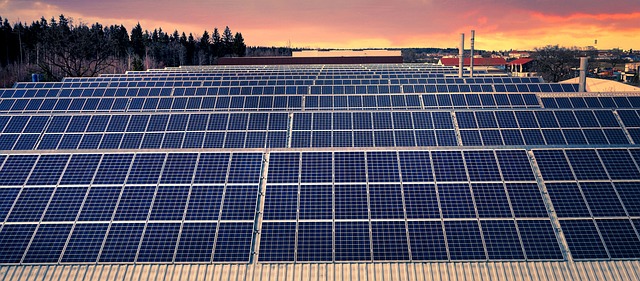When planning construction or expansion projects, selecting commercial roof installation services is crucial. A new roof significantly impacts durability, aesthetics, and long-term performance, protecting buildings from the elements. Choosing the right professionals ensures optimal protection against leaks, damage, and enhances property value. Prioritize regular maintenance and repairs to prevent further structural issues and reduce energy costs. Engage experienced contractors with expertise in various commercial roof types (e.g., metal, EPDM membranes) for specific needs and climates. Properly maintained roofs extend lifespans and maximize returns on investment.
When businesses plan for construction or expansion, a new commercial roof is often at the top of the to-do list. A well-installed and durable commercial roof is not just an essential component of your property’s infrastructure—it’s also a significant investment that can protect your assets, enhance energy efficiency, and ensure business continuity. This comprehensive guide explores all aspects of commercial roof installation services, from identifying the need for a new roof to maintenance tips for longevity.
- Understanding the Importance of Commercial Roof Installation Services
- Identifying Signs Your Business Needs a New Commercial Roof
- The Key Considerations When Choosing Commercial Roof Installation Experts
- Exploring Popular Commercial Roofing Materials and Their Durability
- Navigating the Commercial Roof Installation Process from Start to Finish
- Maintenance Tips for Ensuring Longevity of Your New Commercial Roof
Understanding the Importance of Commercial Roof Installation Services

When businesses plan for construction or expansion projects, one often overlooked yet crucial aspect is the selection of reliable commercial roof installation services. A new roof install is a significant investment, and choosing the right roofing partner can make all the difference in terms of durability, aesthetics, and long-term performance. Commercial roofs serve as the protective barrier between a building’s interior and the elements, ensuring the structural integrity and safety of the property. Therefore, it’s imperative to understand that not all roof build services are created equal.
The variety of commercial roof types available today offers businesses an array of options catering to different needs, climates, and budgets. From flat roofs to steep-slope designs, each requires specialized knowledge and equipment for installation and maintenance. Engaging experienced professionals ensures the optimal performance and longevity of your roof, protecting your investment from leaks, damage, or premature replacement. By prioritizing commercial roof installation services that align with your project’s unique requirements, you’ll establish a robust defense against environmental challenges while enhancing the value and appeal of your commercial space.
Identifying Signs Your Business Needs a New Commercial Roof

Many business owners tend to overlook their building’s roofing system until a problem arises. Regular maintenance and timely repairs are essential to ensuring your commercial property remains protected from the elements, but sometimes, it’s clear that a complete roof replacement is necessary. Identifying signs of wear and tear or structural damage can help you decide if it’s time to contact commercial roof installation services. One of the most visible indicators is missing or damaged shingles, which not only compromise the roof’s integrity but also leave your business vulnerable to leaks.
Additionally, if you notice a significant increase in energy bills despite no changes in heating or cooling systems, it might be due to an inefficient or aging commercial roof. Older roofs can lose their reflective properties, leading to increased absorption of heat, which in turn raises the internal temperature of the building. In such cases, exploring new roof install options and choosing the right commercial roof types could significantly reduce energy costs. Other signs include blisters or buckling on the roof surface, especially if accompanied by mold or mildew growth, indicating a need for professional roof build services to address potential structural issues.
The Key Considerations When Choosing Commercial Roof Installation Experts

When businesses decide to construct or expand their facilities, choosing the right commercial roof installation experts is a crucial step in the process. There are several key considerations that owners and managers should keep in mind to ensure a successful new roof install. Firstly, understanding the different commercial roof types available is essential. From metal roofing to flat roofs and EPDM membranes, each material offers unique advantages and longevity based on specific building needs and weather conditions.
Additionally, it’s vital to engage with contractors who possess experience and expertise in roof build services tailored to your industry. Look for professionals equipped to handle the specifics of your project, whether that involves complex designs, eco-friendly options, or compliance with local regulations. Reputable firms should also provide warranties, ensuring peace of mind long after the new roof installation is complete. This guarantees against potential issues and showcases their confidence in their work.
Exploring Popular Commercial Roofing Materials and Their Durability

When it comes to commercial roof installation services, understanding the durability and benefits of various roofing materials is essential for business owners. Today’s market offers a wide array of options tailored to different needs and climates. From metal to asphalt, each material has its unique strengths and weaknesses in terms of longevity, cost-effectiveness, and resistance to environmental factors.
One popular choice for commercial roof build services is TPO (Thermoplastic Olefin) membranes, known for their superior durability and flexibility. These materials can withstand extreme temperatures, offer excellent resistance to UV rays, and provide long-lasting protection against leaks. Additionally, they are relatively lightweight, making them a cost-efficient option for new roof install projects. Other durable commercial roof types include EPDM (Ethylene Propylene Diene Monomer) rubber, known for its resilience to puncture and tear, and metal roofing, which offers exceptional strength and resistance to corrosion, making it an excellent choice for structures in harsh environments.
Navigating the Commercial Roof Installation Process from Start to Finish

When businesses plan for construction or expansion projects that involve a new commercial space, one of the most crucial components is ensuring a robust and reliable roof. Navigating the commercial roof installation process requires careful consideration and expertise to guarantee both structural integrity and aesthetic appeal. The journey begins with understanding the unique requirements of the building and the various commercial roof types available, such as flat, low-slope, or metal roofing, each with its advantages and considerations.
Engaging reputable commercial roof installation services is a strategic step. These professionals guide clients through every phase, from initial assessments to final inspections. They offer insights on the best materials, considering factors like climate, budget, and long-term sustainability goals. The process involves detailed planning, including measuring the roof area, selecting suitable underlayments, and choosing the appropriate roofing system. Once approved, the installation begins, ensuring meticulous craftsmanship for a lasting solution. This comprehensive approach ensures that businesses receive not just a new roof but also expert advice tailored to their specific needs, resulting in a safe, protected, and visually appealing commercial space.
Maintenance Tips for Ensuring Longevity of Your New Commercial Roof

When you’ve invested in a new commercial roof installation services, proper maintenance is key to ensuring its longevity and maximizing your return on that investment. Regular inspections are crucial to identifying potential issues early on. Look for signs of damage from weather events, leaks, or loose fixtures. Addressing these problems promptly can prevent further complications and costly repairs.
In addition to routine checks, there are several maintenance practices you can implement. These include keeping the roof clear of debris, which can weigh it down and cause strain; sealing any cracks or gaps to prevent water intrusion; and ensuring proper ventilation to regulate temperature and reduce wear and tear. Choosing the right commercial roof types for your building and implementing a consistent maintenance routine will contribute significantly to its overall durability and aesthetic appeal.
